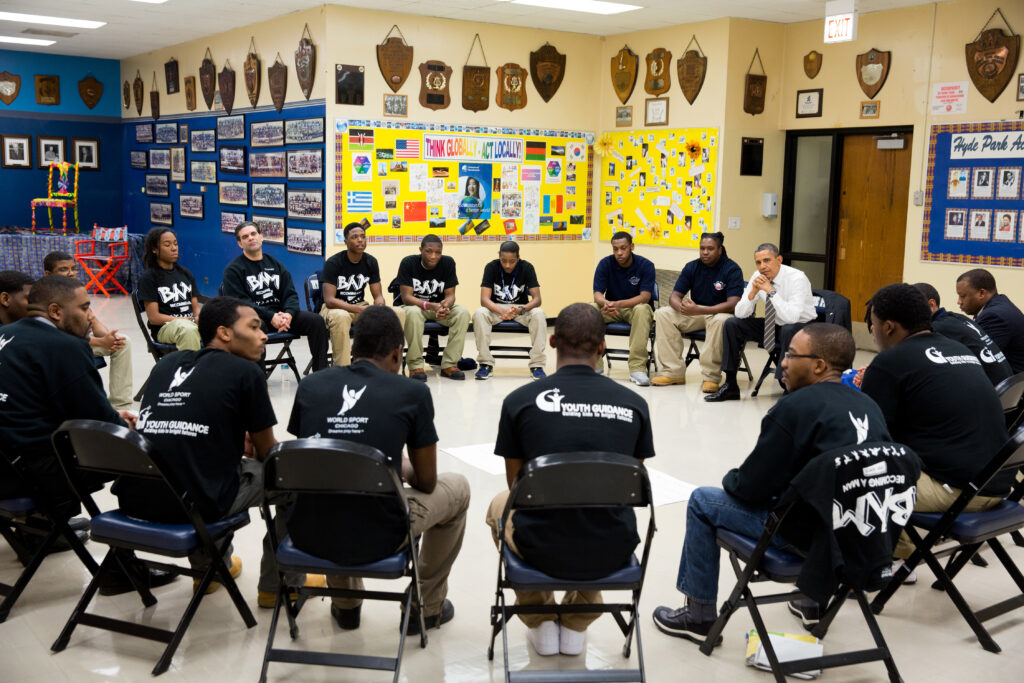

President Barack Obama participates in a "Becoming a Man" program roundtable at the Hyde Park Career Academy in Chicago, Ill., Feb. 15, 2013. Official White House Photo by Pete Souza.
Youth Guidance’s Becoming a Man (BAM) uses insights from behavioral science to help youth navigate high-stakes situations.
Most homicides in the United States start with words. They are arguments that could have been de-escalated but weren’t, and they end in tragedy because someone has a gun.
Much of our behavior is driven by intuitive, almost automatic, decision-making, including our behavior in situations that could escalate into serious violence. BAM is a weekly in-school program that helps youth recognize their automatic responses and “slow down” their thinking in these high-stakes situations.
Unlike what is commonly shown on movies or on television, gun violence in America is not primarily driven by drug wars between gangs, nor is it usually pre-planned or thought through. Instead, most homicides in the United States start with words. They are arguments that could have been de-escalated but weren’t, and they end in tragedy because someone has a gun.
Imagine you’re walking down the street and you see someone scowling in your direction. You might, even subconsciously, assume that the person is scowling not just near you but directly at you. (Behavioral scientists call this tendency “personalization.”) If you confront the scowler and they take it as a challenge, it’s easy for the situation to spiral out of control—and in a world where guns are readily available, this kind of everyday argument carries the risk of deadly consequences.
A growing body of research suggests that our behavior, including the behavior that leads to conflict, is driven by two very different types of decision-making, as illustrated by Daniel Kahneman in Thinking, Fast and Slow (2011): A lot of the behavior that each of us engages in every day is intuitive, even automatic, with little deliberate thought—using what behavioral scientists call your System 1. These automatic thoughts are susceptible to a number of learned mental shortcuts—like personalization—that can affect our judgments and decisions. Depending on the circumstances, decision-making and behavior can sometimes be more deliberate and reflective—using what psychologists call your System 2. But because deliberation is mentally costly, we usually rely on automatic responses.
Becoming a Man (BAM) is a behavioral science-informed program that helps reduce reliance on these automatic responses that we all experience but that have particularly high stakes in economically disadvantaged neighborhoods where guns are common. The program, developed by local nonprofit Youth Guidance, offers one hour, once-per-week group sessions held during the school day that help students notice their own thinking patterns and determine for themselves how best to respond to conflict. For example, to address personalization, BAM counselors have students ask themselves “What would a camera see?” encouraging them to reflect on the ways that the “objective” camera point of view might be different from their own subjective narrative about the situation. This exercise helps students consider alternative interpretations (for instance: a passing scowl from someone on the street might not be about you at all, but instead about a recent parking ticket).